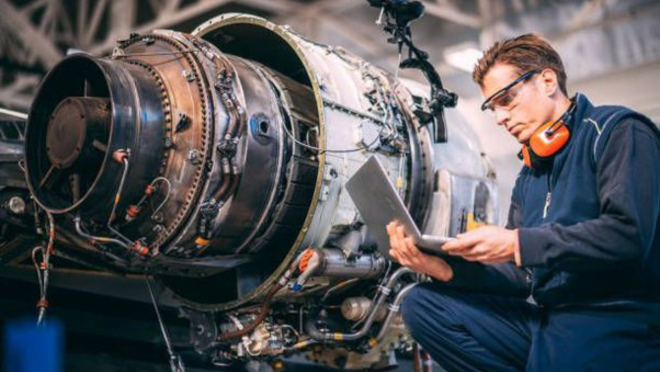Aerospace aspirations: Engineering a future in flight
Aerospace aspirations: Engineering a future in flight

In the field of aviation, the demand for expert engineers is constantly growing. Although these fields, typically associated with aerospace or aircraft maintenance, have been filled by experts coming from foreign universities, Bangladesh is currently developing its engineering fields to cater to aviation, aeronautics, and astronautics.
This is a highly demanding and lucrative career in the twenty-first century, and as Bangladesh develops its inbound air industry and its capabilities both at home and abroad, the manpower required for such an expansion will surely result in higher jobs with higher compensation and competitive salaries.
Universities offering BSc degrees
There are two major public universities currently offering BSc degrees in the field of aerospace and aeronautics. One is the specially instituted Aviation and Aerospace University, which began its journey in 2019. Another is the Military Institute of Science and Technology (MIST). Currently, both are offering Bachelor of Science degrees in Aerospace and Aeronautical Engineering.
However, the number of seats available in these institutions is quite low, and they do boast heavy competition. MIST only has an annual intake of 50 seats, while as of 2024–2025 admissions, AAU only had 30 seats for Aerospace Engineering and 30 for BSc in Aircraft Manufacturing. These numbers are not expected to increase.
Opportunities
Although the field of aeronautics in Bangladesh is still quite small, its outreach and career growth have significant advantages. Major domestic airlines such as Biman Bangladesh Airlines, Novoair, and US-Bangla, etc., are actively fuelling the demand for professionals in aircraft maintenance, safety, operations, and ground-handling roles.
Employment in the domestic market ranges from air traffic operation to aircraft maintenance and management roles in operations and business development. There are also options open for government and semi-government roles in the Bangladesh Aeronautical Centre and Civil Aviation Authority of Bangladesh (CAAB), both of which require experts in engineering, auditing, and other technical roles.
However, there are other unconventional methods of obtaining a degree in Aeronautics. A prospective aerospace engineer can obtain a diploma in the field of aeronautics and can easily use it to propel his or her career by pursuing another BSc degree abroad.
There are lots of credible options, such as the College of Aviation and Technology offering a short-range diploma of 3 months, United College of Aviation and Technology which offers a 4-year diploma in Aircraft Engineering; Bangladesh Airlines Training Centre (BATC) offering a 3-year diploma in Aerospace and Avionics; and Cambrian International College of Aviation (CICA), which offers a diploma in Aeronautics and Aerospace separately.
Worldwide, the demand for Aeronautics and Aviation cannot be overstated. Many Bangladeshi graduates move overseas to complete their Master’s and PhDs in countries such as the USA, UK, France, and Germany.
These countries not only have a vested interest in Aeronautics, but outside of Aviation, this degree holds a significant demand in worldwide weapons manufacturing. Defence contractors such as Lockheed Martin, Northrop Grumman, Raytheon, and Boeing all are Fortune Five Hundred companies—some of the world’s best salary providers who specifically scout young minds doing well in academia related to aerospace and aviation.
There is also a considerable demand in the field of academics. As it is still a growing subject with a limited number of universities offering degrees, the more this curriculum expands, the more it will be welcoming to lecturers and professors who have a comprehensive understanding of the subject and can fill the role of an academic in Bangladeshi universities.
All in all, the field of Aeronautics and Aerospace is an ever-expanding hotbed for in-demand engineering prospects and aviation experts. The role of aviation in the twenty-first century will only increase, and that means the need for credible engineers and innovators is bound to create lucrative opportunities, both commercially and in academics.


